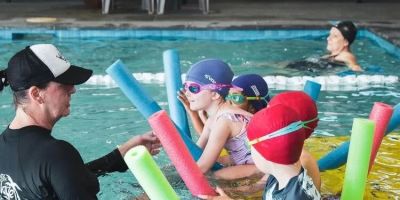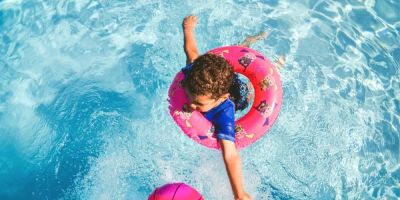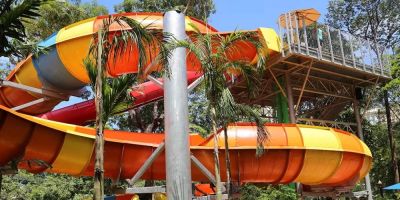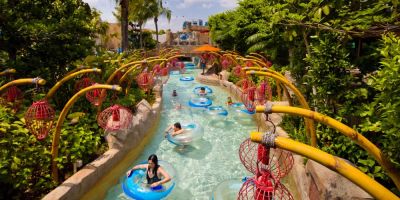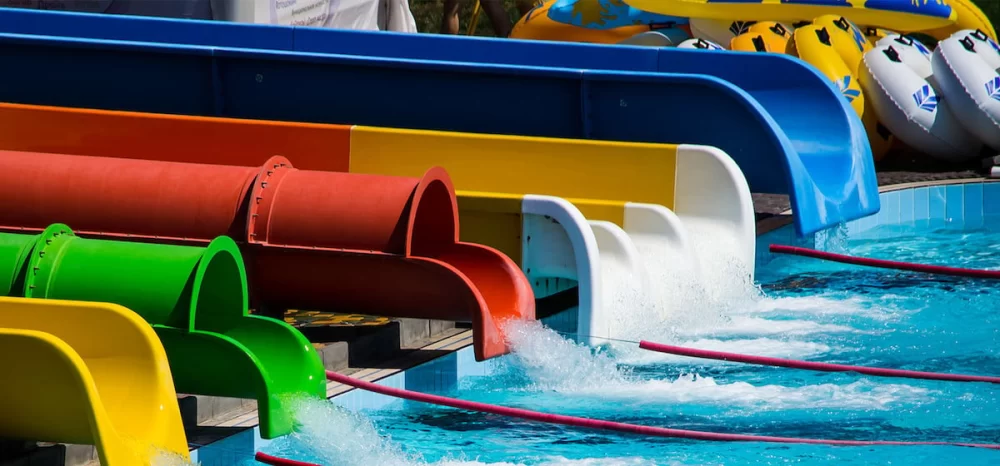
Water Park Safety Tips for Parents and Kids: Essential Guide to a Fun and Safe Day
Water parks are a magical destination for families looking to enjoy a fun day in the sun, filled with thrilling rides, lazy rivers, and cool splash zones. But, just like any adventure, there are important safety considerations that parents must keep in mind to ensure everyone has a blast while staying safe. If you're planning a visit to a water park, here are some crucial water park safety tips for parents and kids.

Rolling Hills Water Park
7660 Stony Creek Rd, Ypsilanti Township, MI 48197, USA
1. Prepare Before You Go: Understanding the Park’s Rules and Guidelines
Before even stepping foot into the water park, it’s important to review the rules and safety guidelines. Most water parks have specific regulations about the types of rides suitable for different age groups and height requirements. As a parent, make sure to familiarize yourself with these details to avoid disappointment and to ensure your children can enjoy the rides safely.
Take the time to look at the park’s website or brochures to understand the layout and know where the lifeguard stations are located. Many parks will also have warnings about specific attractions—some might have health advisories if they are particularly fast or intense rides. Don't forget to check if there are any special safety measures in place, such as the requirement for life vests on certain rides or in deeper water zones.

Grayslake Spray Park
250 Library Ln, Grayslake, IL 60030, USA
2. Life Jackets Are Your Best Friend
Life jackets are one of the most important safety tools available, especially for younger children or those who are not strong swimmers. Even if your child is a good swimmer, it’s always a good idea to have them wear a life vest when they’re in the pool or on water rides, particularly in areas where they might be unexpectedly dunked or pulled under.
Most water parks provide free life jackets for guests, but if you're concerned about fit or comfort, you might want to bring your own. Make sure to properly adjust the life jacket to ensure it fits snugly around your child’s chest and doesn’t slip off in the water. It’s also crucial to remind your child that they should not remove their life jacket until they are back in a safe area and under your supervision.
3. Keeping Track of Your Kids in the Water
It's easy to get distracted when there are so many attractions at a water park, but keeping track of your kids is one of the most important things you can do for their safety. Water parks are large, and children can wander off without even realizing it. Establish a clear meeting spot in case you get separated, and make sure your child knows where to go if they feel lost or scared.
If your child is old enough to go on rides independently, give them a specific time to meet you afterward. Some parks even offer wristbands or ID tags that you can put on your children with your contact information, in case they get lost.
4. Be Aware of Pool Depths and Currents
Different pools at a water park can have varying depths, and it's crucial for both parents and kids to understand where the shallow and deep areas are located. Pools with deep ends or strong currents can be especially dangerous for children who may not be fully comfortable in the water.
Parents should take the time to familiarize themselves with the pool’s layout before allowing their children to enter. Many water parks will clearly mark the shallow and deep sections, but don’t hesitate to ask lifeguards for further guidance if you’re unsure. Avoid letting your child wander into areas that are marked as “deep” or where the water is over their heads, especially if they are not good swimmers.
5. Stay Hydrated and Take Regular Breaks
While it may seem like water parks are all about getting wet, it’s easy to forget the importance of staying hydrated during a day out in the sun. Whether you’re in the water or lounging by the poolside, it’s essential to drink plenty of fluids to avoid dehydration. Bring a refillable water bottle with you and make sure to take regular breaks from the sun to rest and rehydrate.
Heat exhaustion can sneak up on you, especially on hot summer days. Encourage your kids to take breaks and sit in the shade when they start to feel tired or overheated. It’s also a good idea to carry sunscreen and apply it regularly to prevent sunburns, especially on areas that are prone to getting exposed during water activities.
6. Teach Your Kids Basic Water Safety Rules
Before heading to the water park, it’s essential to talk to your kids about water safety. Teach them not to run around the pools or water slides to avoid slips and falls, and explain the importance of listening to lifeguards or other staff members when they give instructions. If your child is old enough, show them how to float on their back, kick their legs, and stay calm in the water.
When they’re old enough to swim on their own, teach them how to recognize and avoid dangerous currents in the water. Many water parks have lazy rivers and wave pools that can be challenging to navigate if you’re not accustomed to the movement of the water. Remind your kids that they should always ask for help if they feel uncomfortable in the water.
7. Watch for Weather Conditions
Water parks are typically open all day, but the weather can change quickly. Before leaving for the park, check the forecast to ensure you’re not caught in a thunderstorm or extreme weather conditions. Many water parks will close certain attractions during storms or severe weather for safety reasons, and there’s nothing worse than having your plans disrupted because of an unexpected downpour.
Keep an eye on the skies while at the park and listen to announcements from park staff. If there’s a chance of storms or lightning, it’s best to err on the side of caution and seek shelter until the weather clears. Remember, the safety of your family should always come first.
8. Know What to Do in an Emergency
In any public space, accidents can happen, and water parks are no exception. It’s always important to be prepared for emergencies, even if you’re hoping to avoid them. If your child has a medical condition or is prone to accidents in the water, make sure the lifeguards know about it, and always have emergency contact information on hand.
Most water parks have trained lifeguards on duty, and they are equipped to handle various situations. However, knowing basic first-aid and CPR can be incredibly helpful in the event of an emergency. As a parent, it’s essential to stay calm and focused, and work with the lifeguards to ensure your child receives the care they need.
9. Have Fun, but Be Safe
At the end of the day, water parks are about having fun and making lasting memories with your family. By following these safety tips and staying vigilant, you can ensure that everyone has a fantastic, worry-free experience. Remember, the key to a successful day at the water park is a balance between fun and safety.
So pack your sunscreen, your sense of adventure, and your commitment to safety. A day at the water park can be one of the most memorable experiences for your family. With these safety tips, you can relax, enjoy the day, and know that everyone is safe while making a splash!


